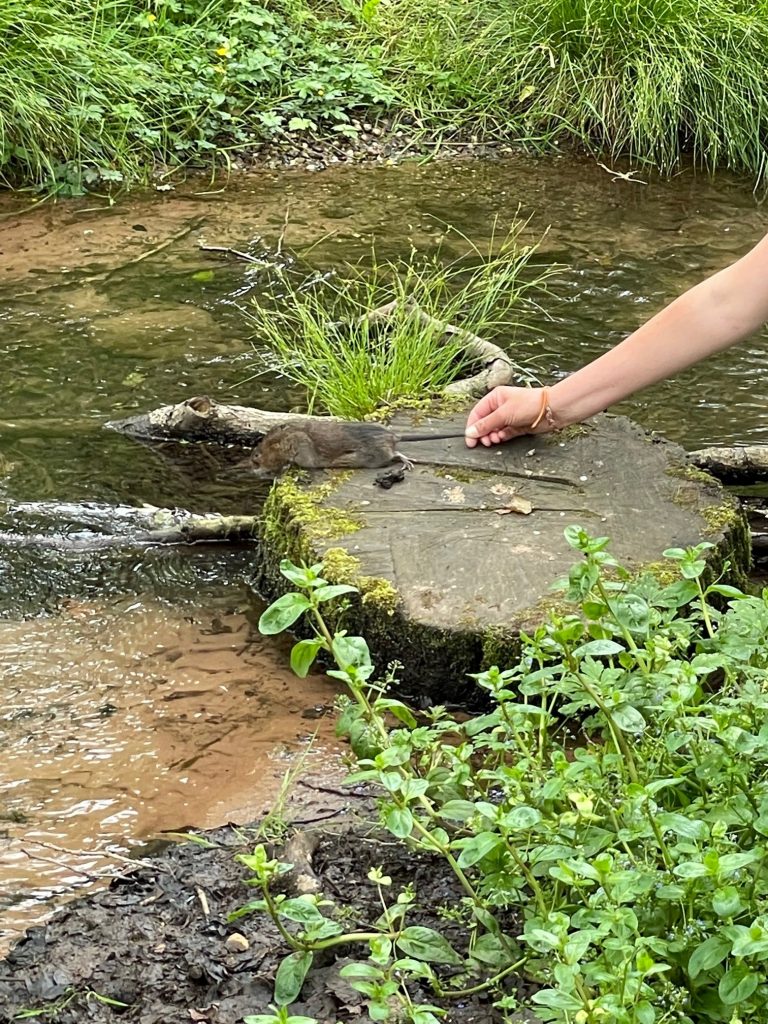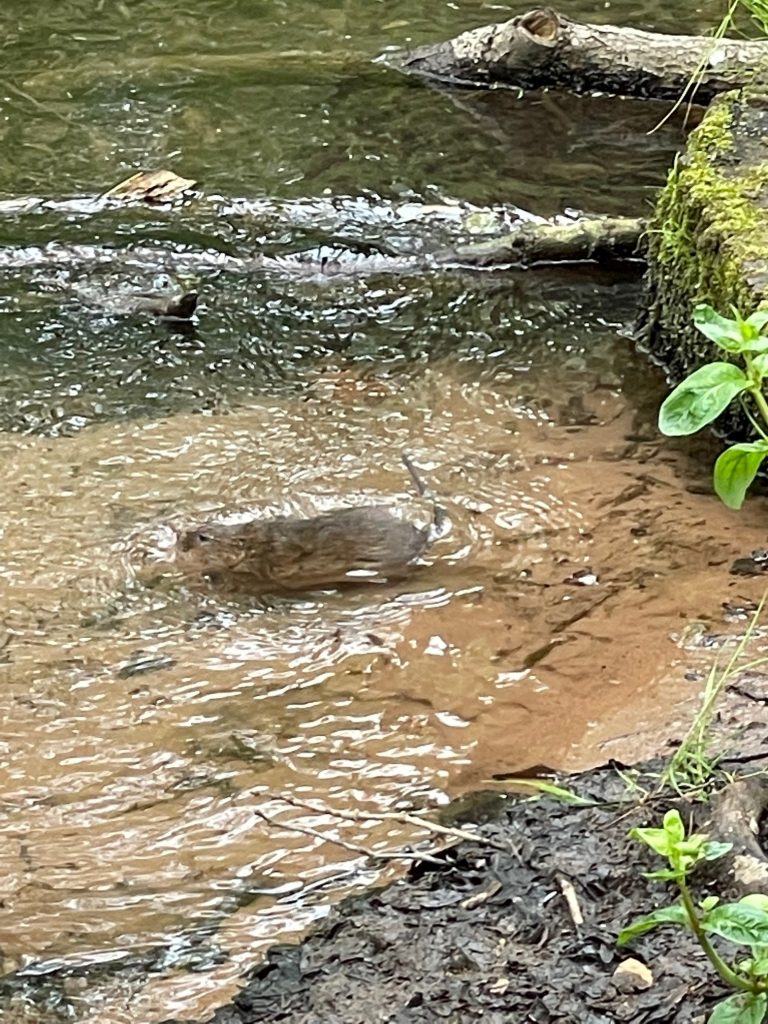Over 200 endangered water voles have finally moved in at Trentham
Water voles, which are endangered in Great Britain, are being re-introduced this week at Trentham. This important wildlife project is to boost the UK’s vole population, which is on the brink of extinction. We’ve been working in partnership with famed ecologist and author, Derek Gow, who also marked the release of his 30,000th vole on site.
That’s a lot of voles! And a big news story with our VIPs, stakeholders, tourism partners, wildlife organisations all joined by the BBC, The Stoke Sentinel and other media organisations.
As Nick Mott, River Restoration Manager at the Staffordshire Wildlife Trust, said: “We estimate that the numbers coming in through this release probably exceed the numbers of wild water voles in the whole of Staffordshire.”
Our 725-acre Estate has undergone a massive regeneration programme since 2003, which includes steps to increase biodiversity and re-introduce important species and we really hope this week’s activity sees a really strong colony of voles making Trentham their home.
Wildlife is a vital element of Trentham, not just to our visitors, but as part of our long-term commitment to nature conservation. We boast an ancient Site of Special Scientific Interest(SSSI) woodlands which are home to historic trees and rare species. The Estate also has a broad range of habitats popular with birds, bug life, otters, deer, amphibians and reptiles.
In a bid to help re-introduce endangered water voles, we’ve been working alongside ecologist, reintroduction specialist and author, Derek Gow, who founded the Derek Gow Consultancy formed of a team of specialists in water vole conservations, surveys, breeding and mitigation. The project is also being supported by the Staffordshire Wildlife Trust.
Since Monday 13th – Monday 20th June, with a team of expert ecologists and volunteers, we’ve installed temporary release pens for 220 water voles in 14 acres of the site with the primary hope they’ll establish a self-sustaining breeding population. The water voles were released into Trentham Lake, a historical Lancelot ‘Capability’ Brown designed feature created at the heart of the Estate. Monday 13th also marked a milestone for Derek as he released his 30,000th water vole on site.
Derek Gow comments: “The release of the 30,000th water vole from a long-term captive breeding programme at Trentham comes at a time when the species’ fortunes in the wild have hit a long time low. Habitat loss in a multitude of forms, the isolation of remaining colonies from any others nearby and predation by introduced North American Mink has restricted this once common animal to a fragment of their former range. Reintroduction projects in Scotland, England and Wales undertaken by me in partnership with organisations such as the Forestry Commission, Environment Agency and the Wildlife Trusts have restored significant populations to landscapes where they have continued to prosper. This work has been recognised as necessary by the International Union for Conservation of Nature as providing a critical lifeline for this species’ survival.”


Since St Modwen’s initiation of restoration work to the Estate and sympathetic management of the lake has changed, wildlife is thriving. Careful and controlled removal of non-native American Mink that decimated vole numbers means that the Estate is ready to re-introduce these rare creatures once again. Combine this with the planting of thousands of native marginal wildflowers and reeds, adjacent woodland and wetland restoration and a network of feeder brooks and watercourses, means the conditions are perfect for this British herbivore to thrive once again. These works have contributed to flood mitigation, storage of carbon, as well as boosting biodiversity for a range of UK Priority species including harvest mice, water shrew and now water voles.
Carol Adams, Head of Horticulture & Biodiversity at Trentham, comments: “The wetland meadows at Trentham are the perfect habitat to reintroduce water voles to, with diverse food sources to keep them sustained through the winter. The area has excellent connectivity with other suitable habitats to enable the voles to naturally spread as their numbers increase both within the footprint of Trentham but also more broadly into this part of the river Trent catchment.”
Nick Mott, River Restoration Manager at the Staffordshire Wildlife Trust, adds: “The Wildlife Trusts across the UK are working hard to save the water vole by improving riverbank habitats and being involved in water vole reintroduction schemes. We are proud to have worked alongside the team at Derek Gow Consultancy to assess the habitat and ensure a suitable environment for the re-introduction of water voles at Trentham and are looking forward to a hopefully successful project.”
Water voles have not been recorded in significant numbers at Trentham since the 1980s, however they play a vital part in the eco system helping to maintain ponds, ditches, streams, rivers, lakes and wetlands. They also help to create a carbon sequestering landscape and support flood protection.
Water voles are protected in the UK under the Wildlife and Countryside Act 1981 and listed as endangered on both the Great Britain and the England Red List for Mammals.
The species used to be found in nearly every waterway in England, Scotland and Wales but are now thought to have been lost in up to 95% of the population. Threats include habitat loss and fragmentation from unsympathetic riverside management, predation by non-native American mink and pollution.
Keeping the public informed is an important part of the project for the Gardens and Estate teams here at Trentham, including raising awareness around habitat conservation and restoration, how this supports both food webs and specific endangered species and how the public can inform and influence habitat conservation through volunteering or supporting projects in their area.
The team also aims to showcase how the public can be considerate of wildlife when accessing water courses and the important role habitat and species can have on reducing the effects of climate change.